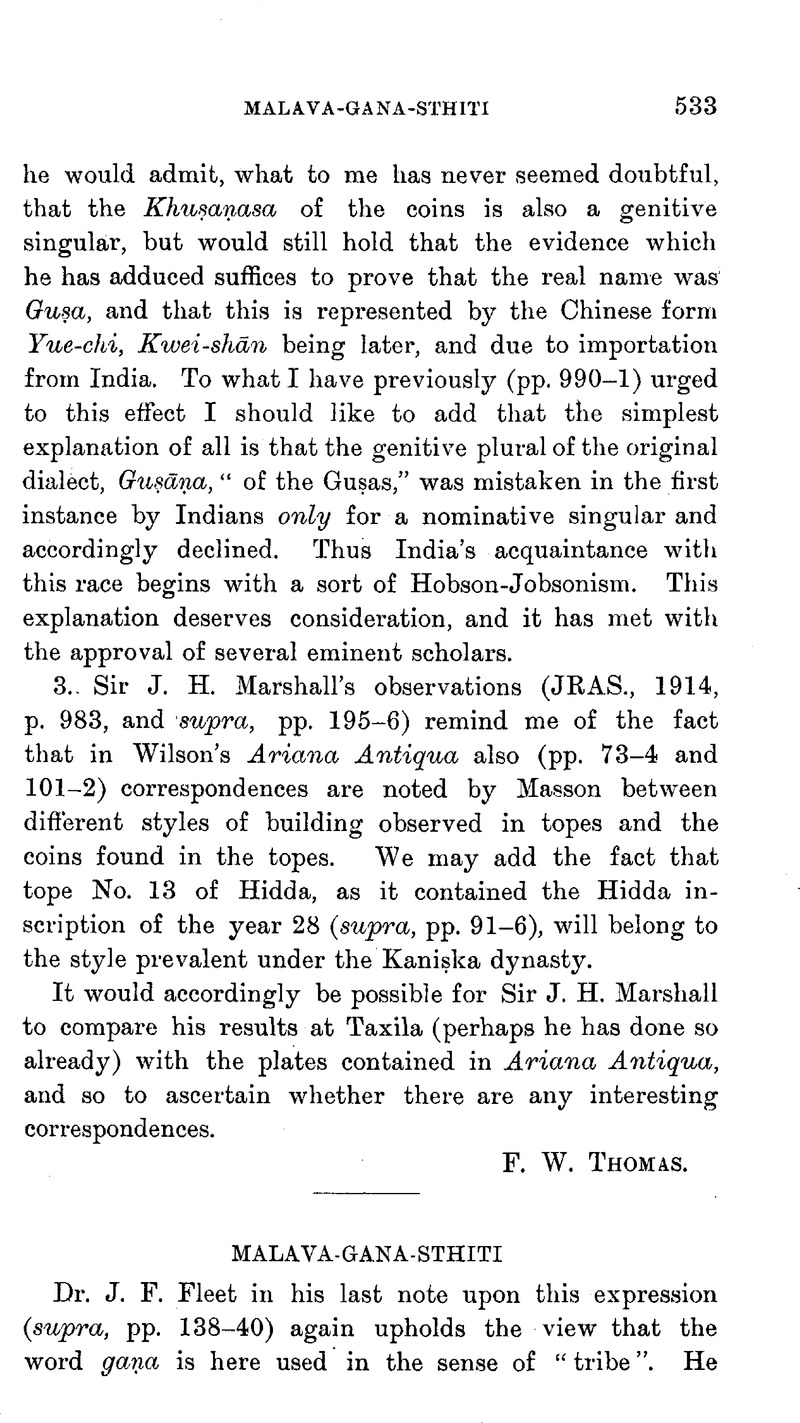No CrossRef data available.

page 535 note 1 Let me add the following quotation from the Sukranīti, iv, 4, 29–30:—Google Scholar

“What families, corporations, and gaṇas are well known to the king, these should deal with people's affairs, excepting cases of violence and theft. The corporations should consider an affair which has not been considered by the families; the gaṇas that not decided by the corporations; the officials that not determined by the gaṇas.”
page 535 note 2 For these and other distinctions see the Oxford English Dictionary.
page 535 note 3 Dr. Fleet is under the impression (p. 138 and note) that in a former note (1914, p. 1010) I misrepresented his connexion with this matter. But it will be seen upon inspection that both in the reference to his adherence to his “original interpretation of it twenty-five years ago” (his own phrase) and also in the statement regarding the “substance” of his “original” rendering I intended to confine attention to the meaning of the word gaṇa, in regard to which the references seem to hold good. Previously (1913, p. 413) I had carefully stated the difference of Dr. Fleet's two successive views.